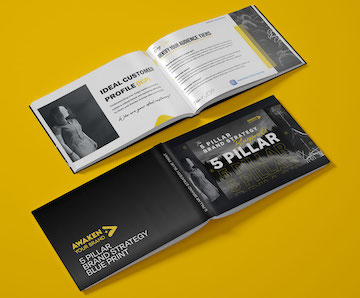As a new business, it is always difficult to find immediate footing. There are many competitors out there and getting the attention of the target market will be very difficult in the beginning. Some businesses have resorted to piggyback branding to solve this problem.
Piggyback branding is a strategy where a smaller business uses the familiarity of a stronger brand to create an identity for itself. This is similar to what Sir Isaac Newton wrote to fellow scientist Robert Hooke about his fame: “If I have seen further, it is by standing on the shoulders of giants.”
Megan Calhoun and TwitterMoms.com
One such giant is the social networking site Twitter. An excellent example case study of piggyback branding is that of entrepreneur Megan Calhoun. She thought it would be very cool to integrate a network of mothers all over the world with the help of Twitter. It became a success. It started as a fan site and eventually evolved into a tightly knit digital community of moms helping each other with anecdotes and tips.
Calhoun built a business around this community and called it TwitterMoms.com. After all, most of her contacts came from Twitter. By piggybacking TwitterMoms on this social media platform, Calhoun was able to initiate and create a huge community. In fact, Calhoun’s operations grew from a sole venture to a full-fledged organization with six employees and an army of volunteers and freelancers. They were also able to promote Twitter to countless more moms all over the world.
But was this enough reason for TwitterMoms to include the name Twitter in their business brand?
Apparently, Twitter didn’t like this. It sent a letter to TwitterMoms requesting them to change their name because of trademark issues. The piggyback ride was over already. TwitterMoms never hesitated with its compliance. It changed its name to SocialMoms.com and re-launched its own brand in January 2011.
Looking back, the piggyback branding helped SocialMoms put themselves in a position of success. Their member moms have been featured in top media outlets. They have helped other mothers earn sizable revenues for their efforts in social media marketing. To say the least, the piggyback branding endeavor was a success – even if they had to change their name and remove any Twitter references in the process.
The Dangers of Piggyback Branding
TwitterMoms are not the only business to have piggybacked their fortunes on the success of Twitter. A company called TweetLater also got a letter from Twitter to change its name. TweetLater changed their name to SocialOomph.com. To save face, they claimed that the name change was part of an unsolicited and preemptive move of management to expand their operations to social media.
Be cautious because not all major companies are like Twitter who respectfully writes letters to companies who use the trademark of Twitter on their official marketing and campaigns. If a company has been spotted using the trademarks of others without permission, this can instantly result in a lawsuit.
This poses a significant danger for the small business owner because all gains they gain from piggyback branding could not only end up in the drain but also turn potentially quite costly. The smaller business will find it hard to compete in court with a giant such as Twitter. I have seen a lot of examples where interior designer branding is built on top of work done for famous clients. But permission should be sought before embarking on such campaigns.
Third party applications and websites can normally be used for free in the Internet such as YouTube, Twitter and Facebook. But there is a limit to the way a starting business can use these to promote its own brand. Legal issues will instantly arise if you use their trademark in your own business name. Never assume that it is okay and that they will respectfully request you to stop. When in doubt, consult an attorney.
There is a difference between standing on the shoulders of a giant brand and simple leeching. In the case of the former, you will use the insights of the giant brand to create a path of your own. The latter is just trying to take advantage of the popularity of that brand.

